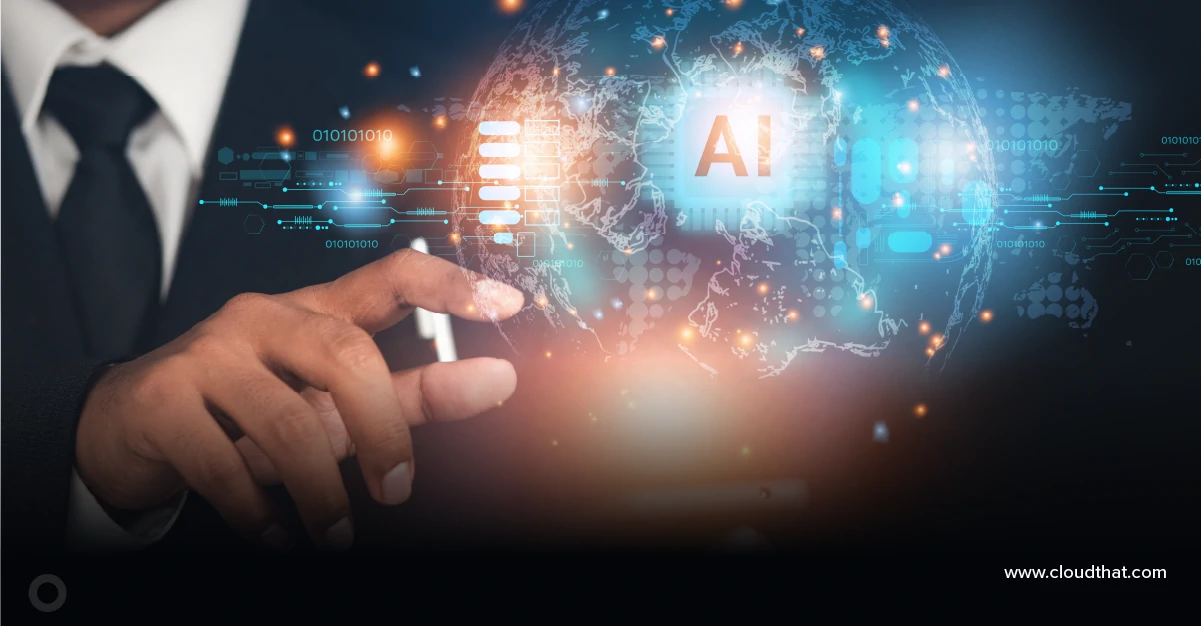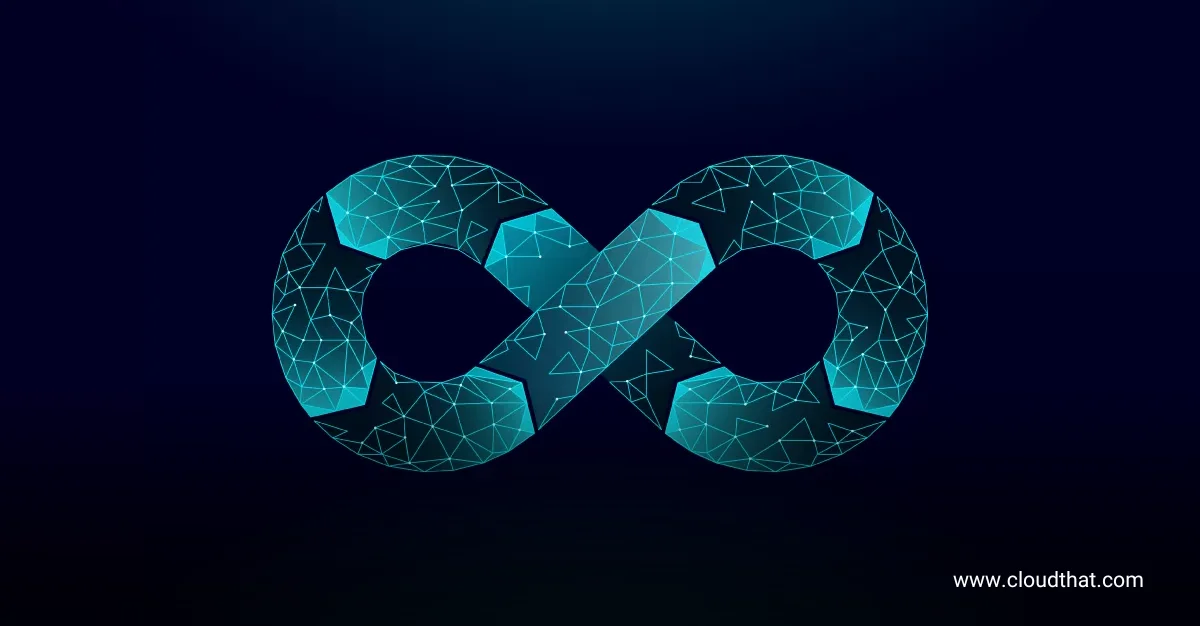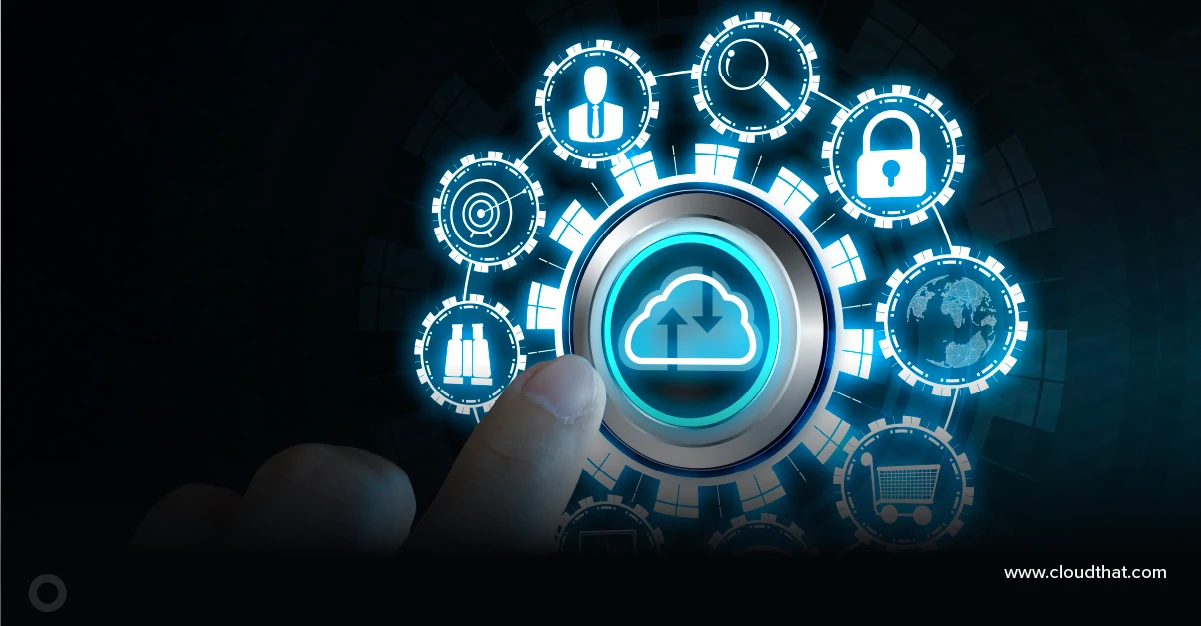|
Voiced by Amazon Polly |
Introduction
In the dynamic landscape of data science, the collaboration between development and data teams is pivotal for unlocking the full potential of insights. This blog embarks on a journey to explore the symbiotic relationship between DevOps and data science, uncovering how their collaboration bridges the gap between traditional development practices and the unique challenges of working with data. Join us as we unravel the art of harmonizing insights through the lens of DevOps for data science.
Empowering organizations to become ‘data driven’ enterprises with our Cloud experts.
- Reduced infrastructure costs
- Timely data-driven decisions
Demystifying DevOps and Data Science:
Understanding DevOps Principles:
DevOps is a cultural and operational philosophy primarily associated with software development and IT operations. Its principles revolve around collaboration, automation, and shared responsibility. Unpack these principles and understand how they can be extended to the world of data science to streamline processes, enhance collaboration, and deliver actionable insights more efficiently.
The Unique Challenges of Data Science:
Data science projects often face unique challenges, from data preprocessing to model deployment. Explore these challenges and understand how the principles of DevOps can address them. From version control for datasets to automating model deployment, discover the nuances of applying DevOps in the data science realm.
Bridging the Gap with DevOps in Data Science:
Collaboration Beyond Silos:
One of the core tenets of DevOps is breaking down silos between development and operations teams. In data science, this means fostering collaboration between data scientists, analysts, and IT operations. Learn how DevOps practices can create a unified workflow where data science tasks seamlessly integrate with development and deployment processes.
Version Control for Data:
Version control is a fundamental aspect of DevOps for traditional software development. Extend this concept to the realm of data science by exploring tools and practices for versioning datasets and machine learning models. Discover how version control ensures reproducibility, facilitates collaboration, and mitigates the challenges of working with evolving datasets.
Automation: The Engine of Efficiency in Data Science:
Automating Data Pipelines:
The journey from raw data to valuable insights involves complex data pipelines in data science. DevOps principles advocate for automation, and data science is no exception. Dive into the world of automating data pipelines, from data cleaning and preprocessing to feature engineering and model training. Explore how automation enhances repeatability and accelerates the time-to-insight.
CI/CD for Data Science:
Continuous Integration and Continuous Deployment (CI/CD) are cornerstones of DevOps. Learn how to implement CI/CD practices in the context of data science projects. Understand the benefits of automated testing for data quality, model accuracy, and deployment readiness. Witness how CI/CD pipelines ensure that changes in data and models are seamlessly integrated and deployed with confidence.
Ensuring Model and Data Security:
Securing Data and Models:
Security is paramount in any DevOps practice. Explore how DevOps principles can be applied to enhance the security of data and machine learning models. From encrypting sensitive data to implementing access controls, uncover strategies for safeguarding the integrity and confidentiality of data science projects.
Governance and Compliance:
Data science projects often deal with sensitive information, requiring governance and compliance standards adherence. Learn how DevOps practices support governance by providing traceability, auditing, and documentation capabilities. Ensure that your data science workflows align with regulatory requirements and industry standards.
Bridging the Collaboration Gap
DevOps, emphasizing collaboration, automation, and shared responsibility, has proven to be a bridge spanning the traditionally siloed realms of development and data science. This collaboration is not just a nicety; it’s a necessity in the modern analytics landscape. As organizations strive to derive actionable insights from their data, the harmonious integration of data scientists, analysts, and IT operations becomes paramount.
Conclusion
The synergy between these two domains is not merely a convergence of methodologies but the harmonization of insights for the future. The journey we’ve embarked upon has revealed the transformative power of integrating DevOps practices into the intricate landscape of data science.
Freedom Month Sale — Discounts That Set You Free!
- Up to 80% OFF AWS Courses
- Up to 30% OFF Microsoft Certs
- Ends August 31
About CloudThat
CloudThat is an award-winning company and the first in India to offer cloud training and consulting services worldwide. As a Microsoft Solutions Partner, AWS Advanced Tier Training Partner, and Google Cloud Platform Partner, CloudThat has empowered over 850,000 professionals through 600+ cloud certifications winning global recognition for its training excellence including 20 MCT Trainers in Microsoft’s Global Top 100 and an impressive 12 awards in the last 8 years. CloudThat specializes in Cloud Migration, Data Platforms, DevOps, IoT, and cutting-edge technologies like Gen AI & AI/ML. It has delivered over 500 consulting projects for 250+ organizations in 30+ countries as it continues to empower professionals and enterprises to thrive in the digital-first world.
FAQs
1. Why is collaboration between data science and development crucial in modern analytics projects?
ANS: – Collaboration between data science and development is essential for creating a seamless workflow that spans from data exploration to model deployment. This collaboration ensures that insights generated by data science teams are effectively integrated into development processes, enabling organizations to derive maximum value from their data.
2. How does DevOps address the challenges of versioning datasets and machine learning models in data science projects?
ANS: – DevOps brings the concept of version control to data science, allowing teams to track changes in datasets and machine learning models over time. It ensures reproducibility, facilitates collaboration and provides a systematic approach to managing the evolution of data science artifacts.
3. How can DevOps practices contribute to the security of data and machine learning models in data science projects?
ANS: – DevOps practices enhance the security of data science projects by implementing encryption for sensitive data, establishing access controls, and incorporating governance and compliance measures. These practices ensure that data and models are handled securely throughout the entire development lifecycle.

WRITTEN BY Deepakraj A L
Deepakraj is a dedicated DevOps Engineer passionate about building and managing resilient, scalable systems with Kubernetes at the core. With hands-on experience in containerization (Docker), CI/CD pipelines (Jenkins), and cloud platforms (AWS), he specializes in modernizing infrastructure and accelerating software delivery. His strength lies in transitioning legacy systems into microservices, driving agility and performance. He is also a strong advocate for Infrastructure as Code and version-controlled workflows using Git.


 Login
Login


 December 21, 2023
December 21, 2023 PREV
PREV











Comments